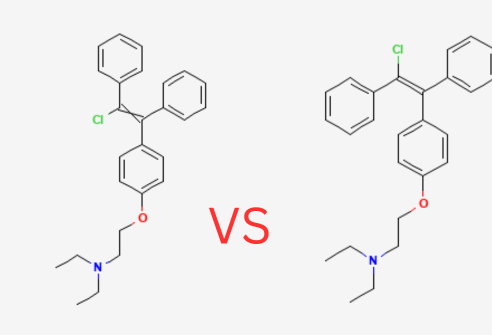Human Growth Hormone (HGH) plays a vital role in growth, metabolism, and overall maintenance of tissues and organs. With the advent of synthetic HGH, its usage has extended beyond medical treatment to areas like bodybuilding and anti-aging therapies. However, a critical concern arises regarding whether synthetic HGH suppresses the body’s natural production of the hormone. This article delves into the effects of synthetic HGH on natural production, backed by research findings, and offers strategies to manage these effects effectively.
What is HGH?
HGH, produced by the pituitary gland, stimulates growth in children and helps maintain tissues and organs throughout life. It promotes the growth of bones and muscles, supports metabolism, and influences overall physical health. Naturally, HGH levels peak during puberty and gradually decline with age.
The hormone operates through a complex mechanism involving the liver’s production of insulin-like growth factor 1 (IGF-1), which mediates many of HGH’s effects. HGH release is regulated by the hypothalamus and follows a pulsatile pattern, with the highest levels occurring during deep sleep.
Why Use Synthetic HGH?
Synthetic HGH is used to treat conditions like growth hormone deficiency, Turner syndrome, and muscle-wasting diseases. These treatments aim to restore normal growth and metabolism in patients lacking adequate natural HGH production.
In non-medical contexts, synthetic HGH is popular among athletes and bodybuilders for its ability to enhance muscle growth, reduce fat, and improve recovery times. It is also marketed for its purported anti-aging benefits, although these claims are often not supported by robust scientific evidence.
Mechanism of HGH Action
Synthetic HGH mimics the action of natural HGH by binding to receptors on target cells, initiating a cascade of cellular events that promote growth and metabolic functions. This process involves the stimulation of IGF-1 production in the liver, which then acts on various tissues to stimulate growth and repair.
While synthetic and natural HGH share similar mechanisms, their administration can disrupt the body’s natural hormonal balance, particularly if used inappropriately or without medical supervision.
Does Synthetic HGH Shut Down Natural Production?
Studies indicate that synthetic HGH can temporarily suppress the body’s natural HGH production. This suppression occurs because the external hormone signals the body that it has sufficient HGH, reducing the need for endogenous production. For example, research has shown that during synthetic HGH therapy, the amplitude of natural HGH pulses decreases significantly.
However, this suppression is usually reversible. Once synthetic HGH administration stops, natural production typically resumes, although the recovery time can vary. Some studies suggest that careful management of HGH cycles can mitigate long-term impacts on natural production.
Negative Feedback Mechanism
The body regulates hormone levels through feedback loops. When synthetic HGH is introduced, it creates a negative feedback loop, where the hypothalamus reduces the release of growth hormone-releasing hormone (GHRH), subsequently decreasing natural HGH production. This mechanism is similar to how the body regulates other hormones like testosterone and thyroid hormones.
Understanding this mechanism is crucial for managing HGH therapy effectively. For instance, timing HGH injections to avoid periods of natural peak production can help maintain some level of endogenous hormone release.

Potential Side Effects of Synthetic HGH
Short-term Side Effects
Short-term side effects of synthetic HGH include joint pain, muscle aches, and fluid retention. These effects are usually mild and reversible upon cessation of HGH therapy.
Long-term Side Effects
Long-term use of synthetic HGH can lead to more severe complications such as acromegaly (enlargement of bones and tissues), increased risk of diabetes, and cardiovascular issues. These risks highlight the importance of medical supervision and appropriate dosing.
Psychological Effects
Psychological effects, including mood swings and dependency, have also been reported with synthetic HGH use. These effects necessitate careful monitoring and consideration of mental health alongside physical health during HGH therapy.
Managing HGH Use to Minimize Disruption
To minimize the disruption of natural HGH production, it is essential to follow proper timing and dosage strategies. For example, administering HGH in the morning can avoid interfering with the body’s natural nighttime HGH pulses.
Using HGH in cycles, rather than continuous administration, allows the body to recover its natural production in between cycles. Combining HGH with other therapies, such as growth hormone-releasing peptides, can also help maintain natural hormone levels.
Healthcare professionals play a crucial role in monitoring and adjusting HGH therapy to ensure it is both effective and safe. Regular blood tests and medical evaluations can help tailor the treatment to individual needs, reducing the risk of adverse effects.
Alternative Approaches to Boost Natural HGH Production
Lifestyle Changes
Lifestyle changes can significantly boost natural HGH production. Regular exercise, particularly high-intensity interval training (HIIT), can stimulate HGH release. Adequate sleep is also crucial, as the majority of HGH secretion occurs during deep sleep stages.
Supplements and Natural Enhancers
Certain supplements, like arginine and glutamine, have been shown to promote natural HGH release. A balanced diet rich in protein, healthy fats, and low in sugar can also support optimal HGH levels.
Benefits of Maintaining Natural HGH Levels
Maintaining natural HGH levels has numerous benefits, including better muscle mass, reduced fat accumulation, improved energy levels, and overall enhanced well-being. Focusing on natural ways to boost HGH can be a safer and more sustainable approach compared to synthetic alternatives.
Reach out to Empower Men’s Health Clinic for your HGH needs
In conclusion, while synthetic HGH can temporarily suppress natural production, this effect is generally reversible with proper management. Understanding the body’s feedback mechanisms and following recommended dosing and cycling protocols are key to minimizing long-term risks. For those considering HGH therapy, consulting with healthcare professionals is essential. Empower Men’s Health Clinic offers comprehensive HGH therapy solutions and expert guidance to help you navigate your HGH needs safely and effectively.


